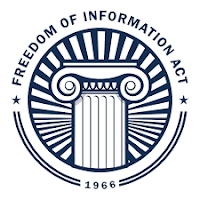On July 28, 2022 we posted Manchin & Schumer Agree on Build Back "SOMEWHAT" Better Deal With 15% Corp. Minimum Tax & Increased Tax Enforcement, where we discussed that Sen. Joe Manchin & Chuck Schumer agreed on legislation that would impose a 15% corporate minimum tax as part of a larger package to address tax, energy and health care costs.
Now The Proposal To Appropriate $80 Billion Over 10 Years To The IRS Is Back On The Table As Part Of A Reconciliation Bill Recently Announced By Senate Democrats.
The BBB, once a $1.7 trillion legislative package, failed to gain enough support in the Senate to advance beyond the House of Representatives. While some provisions were axed or modified to appease the majority party's more moderate senators, like Sen. Joe Manchin of West Virginia, IRS funding was left intact. The appropriated amounts and their intended purposes are largely untouched in what is now the Inflation Reduction Act of 2022 (IRA 2022; H.R. 5376).
As written, the funds would be available to the IRS through September 30, 2031, across four areas of the agency.
Enforcement-Related Funds, At $45.6 Billion, Make Up More Than Half
Of The Total Appropriations.
That's up from the nearly $44.9 billion proposed in the BBB. The goal would be to reduce the so-called tax gap by enhancing the IRS' means of capturing revenue from taxes that may otherwise not have been collected.
Further, The Funds Would Cover Litigation
And Criminal Investigation Expenses.
Notably, the enforcement section of the new act states that the funding is also for "digital asset monitoring and compliance activities," language also present in the November 3, 2021, House-amended version of the BBB.
Notably, the enforcement section of the new act states that the funding is also for "digital asset monitoring and compliance activities," language also present in the November 3, 2021, House-amended version of the BBB.
This definition subsequently became law when the Infrastructure Investment and Jobs Act (IIJA; PL 117-58) was enacted November 15, 2021. Presumably, the monitoring and compliance activities identified in the Act would apply to digital assets as defined by the IIJA, which also established that a digital asset broker is anyone who "regularly provides any service effectuating transfers of digital assets on behalf of another person."
In March, the Biden administration indicated in its fiscal 2023 Green Book of budget priorities that digital assets would be a focal point of future strategies to address noncompliance.
Various IRS officials speaking at tax conferences this year have reiterated that the agency is devoting more attention to tax avoidance behaviors involving digital assets that contribute to the tax gap.
Have Unreported Income?
Contact the Tax Lawyers at
Marini& Associates, P.A.
for a FREE Tax Consultation at:
Read more at: Tax Times blog










